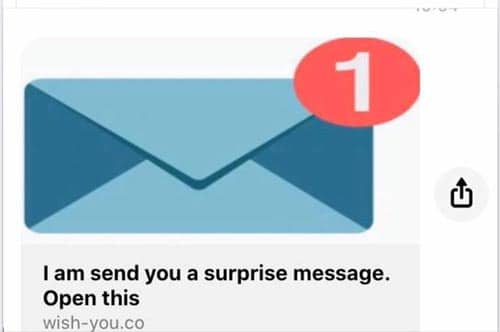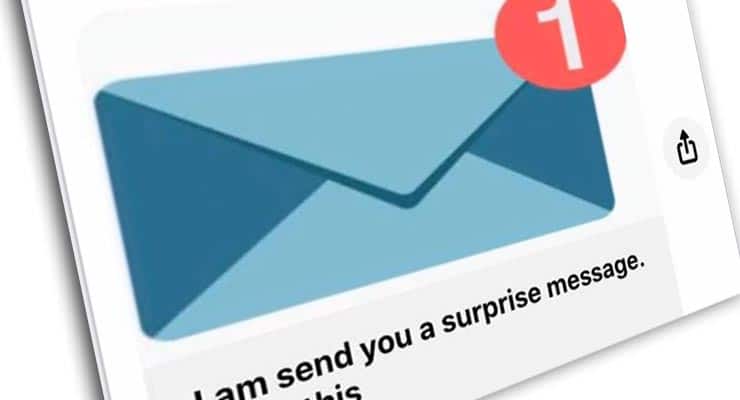Watch out for “Surprise Message” links spreading on Facebook
Another spate of suspicious links are being circulated across Facebook Messenger and WhatsApp towards the end of 2019 and beginning of 2020 that are designed to lure users to potentially malicious websites.
The links, which are likely to appear as if they have been sent by a friend or family member on Facebook or other messaging services, attempt to lure users into clicking them by using captions like “I am send you a surprise message. Open this”[sic].
See the example link below.

Upon clicking these links, users are taken to unsecure websites that, in this case, ask visitors to input a name to create a personalised greeting card. However all of the website domains associated with this spate of links are unsecure and recently created, meaning they could easily be used to try and trick visitors into installing malware or rogue browser extensions, or possibly used to trick users into giving away sensitive login information.
Sponsored Content. Continued below...
While the domains we visited seem limited to creating a greeting card and imploring visitors to share that greeting card on social media, there have been reports that some of these websites attempted to lure visitors into installing browser extensions, and social media users have reported sending such links from their accounts without their knowledge. While we cannot confirm the validity of this, the websites themselves (and the fact there are so many identical domains circulating via these links) is enough for us to warn our readers from using them.
Regardless of how dangerous this spate of links turns out to be, they display all the classic hallmarks of a scam, and as such we recommend avoiding clicking on links like this that lead to external and untrusted websites.
Remember, just because a trusted friend or family member appear to have sent you a link, it doesn’t mean they have done so. It is possible their social media account could have become compromised and the link was actually sent out by spammers or cyber crooks. And if clicking such a link takes you off of Facebook and onto a website you’ve never heard of, it is important to leave that site without clicking anything or entering any of your information.
Continued below...
Thanks for reading, we hope this article helped, but before you leave us for greener pastures, please help us out.
We're hoping to be totally ad-free by 2025 - after all, no one likes online adverts, and all they do is get in the way and slow everything down. But of course we still have fees and costs to pay, so please, please consider becoming a Facebook supporter! It costs only 0.99p (~$1.30) a month (you can stop at any time) and ensures we can still keep posting Cybersecurity themed content to help keep our communities safe and scam-free. You can subscribe here
Remember, we're active on social media - so follow us on Facebook, Bluesky, Instagram and X
